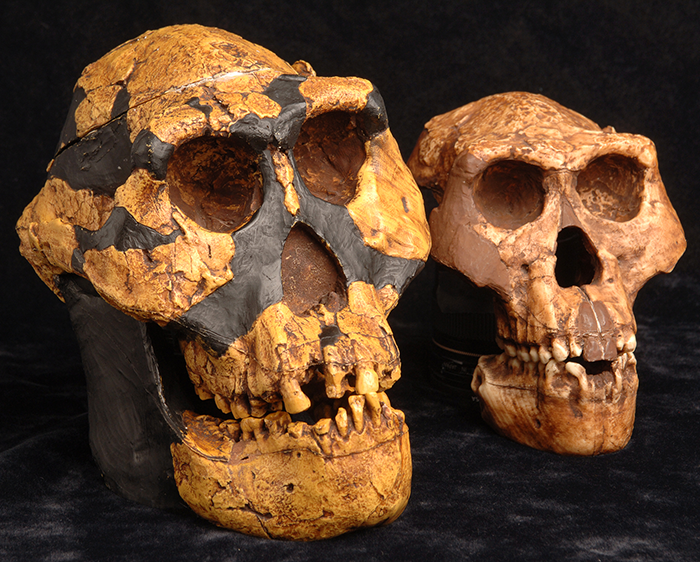What did we learn from Lucy? w/ Donald Johanson
Donald Johanson--credited with discovering the Australopithecus afarensis skeleton known as "Lucy" in 1974-- talks about what we can learn about humans from looking at Australopithecus afarensis and why her discovery was so important.
Look for more videos in this series, as we ask world-renowned anthropologists some of your most compelling questions. Have a question for us? Ask here!
Donald Johanson: I'm Donald Johanson and I am the founding director of the Institute of Human Origins at Arizona State University.
Question: How did "Lucy" change our understanding of where we came from?
Johanson: The discovery of Lucy - and she belongs to her own unique kind of human. Modern humans are Homo sapiens, we're supposed to be intelligent, or wise men. And Lucy belongs to a completely different group of early humans that were walking upright but had, as you can see here, relatively small brains. Brains the size of a chimpanzee, for example. She wasn't a chimp, because she was walking upright like we do. She belongs in a genus named Australopithecus and she was given her own species name, afarensis, after the Afar region.
And what she did was she provided a very important bridge (I hesitate to use the word link, but bridge) between much more ape-like ancestors that had very projecting faces and were very ape-like in their anatomy, to something that still certainly looks somewhat like an ape, with a projecting face like this and small brain, but this was perched on top of a body that walked like we do - on two legs - which is very very unique. So, she provided a very important link - bridge - between something more ancient and something more modern.
My working idea, or hypothesis, which I delivered in 1978, was that this was the last common ancestor to one group that led to modern humans Homo sapiens and another group that led to other kinds of Australopithecus but extinction.
That to a very large extent is is our contemporary view of why Lucy is so important. Because she was at that pivotal point in human origins when, for various reasons, there was a division into two major branches, one which led to ourselves.
Be Part of
Ask An Anthropologist
By volunteering, or simply sending us feedback on the site. Scientists, teachers, writers, illustrators, and translators are all important to the program. If you are interested in helping with the website we have a volunteers page to get the process started.

